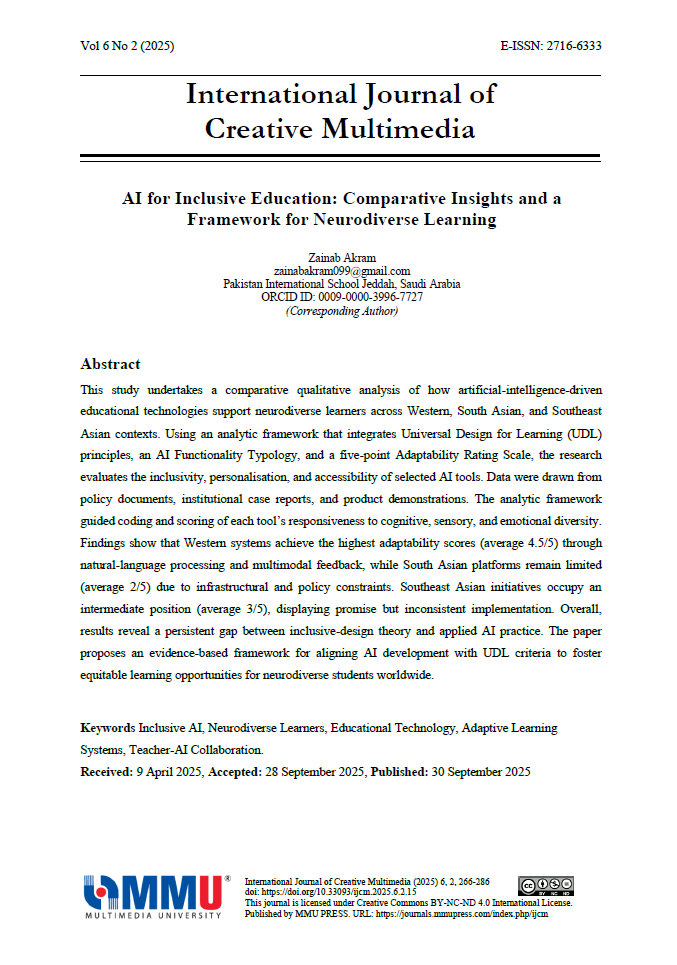AI for Inclusive Education: Comparative Insights and a Framework for Neurodiverse Learning
Main Article Content
Abstract
This study undertakes a comparative qualitative analysis of how artificial-intelligence-driven educational technologies support neurodiverse learners across Western, South Asian, and Southeast Asian contexts. Using an analytic framework that integrates Universal Design for Learning (UDL) principles, an AI Functionality Typology, and a five-point Adaptability Rating Scale, the research evaluates the inclusivity, personalisation, and accessibility of selected AI tools. Data were drawn from policy documents, institutional case reports, and product demonstrations. The analytic framework guided coding and scoring of each tool’s responsiveness to cognitive, sensory, and emotional diversity. Findings show that Western systems achieve the highest adaptability scores (average 4.5/5) through natural-language processing and multimodal feedback, while South Asian platforms remain limited (average 2/5) due to infrastructural and policy constraints. Southeast Asian initiatives occupy an intermediate position (average 3/5), displaying promise but inconsistent implementation. Overall, results reveal a persistent gap between inclusive-design theory and applied AI practice. The paper proposes an evidence-based framework for aligning AI development with UDL criteria to foster equitable learning opportunities for neurodiverse students worldwide.
Article Details

This work is licensed under a Creative Commons Attribution-NonCommercial-NoDerivatives 4.0 International License.

